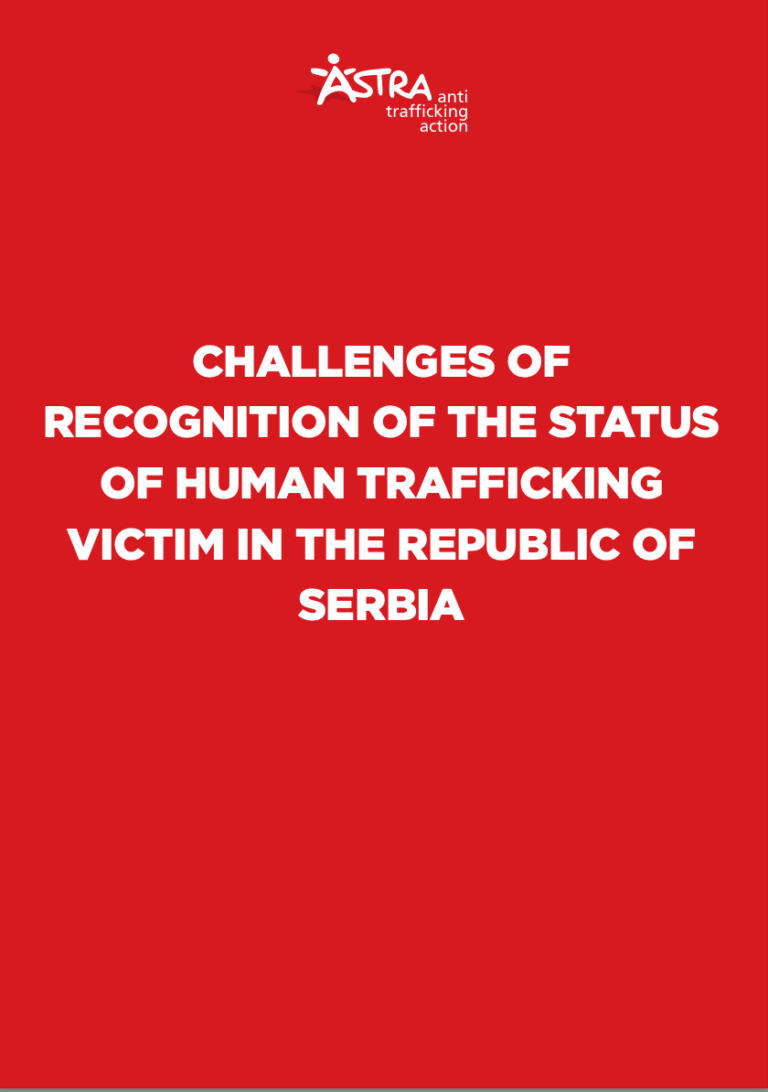Trafficking in human beings is a global phenomenon encountered with by almost all countries in the world – either as countries of origin, transit, or final destination for the victims. Due to the complexity of the very phenomenon, numerous United Nations and Council of Europe’s bodies, as well as international and national NGOs are involved in working on the prevention, suppression and punishment of this criminal offence. ASTRA, founded in 2000, was the first NGO in Serbia to recognise and highlight the problem of trafficking in human beings. Since its establishment, ASTRA has dealt with this problem comprehensively and its work has been aimed at the prevention, identification, and prosecution of the perpetrators of human trafficking, support to the victims, including empowerment and reintegration into the society, as well as the analysis of operation of the institutions responsible for the assistance and support to this category of victims. From 2002 to the end of 2021, ASTRA identified 562 victims of trafficking in human beings.

